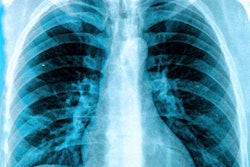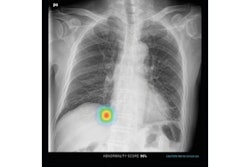Wednesday, December 1 | 9:30 a.m.-10:30 a.m. | SSIN06-1 | Room TBA
In this talk, researchers will describe how an artificial intelligence (AI) algorithm can reveal racial or ethnic disparities in COVID-19 patients based on their chest x-rays.Using over 14,000 ambulatory frontal chest x-rays, a multi-institutional team of researchers trained a multitask deep-learning model to predict comorbidities and then associate these findings with self-reported race/ethnicity recorded in the electronic health record (EHR) software.
In testing, the algorithm yielded an area under the curve (AUC) of 0.99 for predicting patient sex, 0.91 for morbid obesity, 0.88 for congestive heart failure, 0.87 for vascular disease, 0.81 for cardiac arrhythmias, and 0.80 for predicting diabetes with chronic complications.
When modeled with logistic regression analysis, the algorithm's comorbidity scores for chronic obstructive pulmonary disease (COPD) and cardiac arrhythmias were significantly associated with self-reported race/ethnicity (p < 0.05). Overall, the deep learning-based comorbidity model yielded an AUC of 0.65 for predicting self-reported race, compared with 0.61 when using the Medicare Advantage Hierarchical Condition Category (HCC) Risk Adjustment Model calculated from EHR data.
"Radiographic [deep-learning] modeling can predict relevant comorbidities among COVID-19 patients, identifying those with health disparities who may benefit from mitigation," wrote presenter Dr. Ayis Pyrros of Duly Health and Care in Chicago and colleagues.
Avoid any disparities in your AI knowledge by attending this Wednesday morning talk.




















